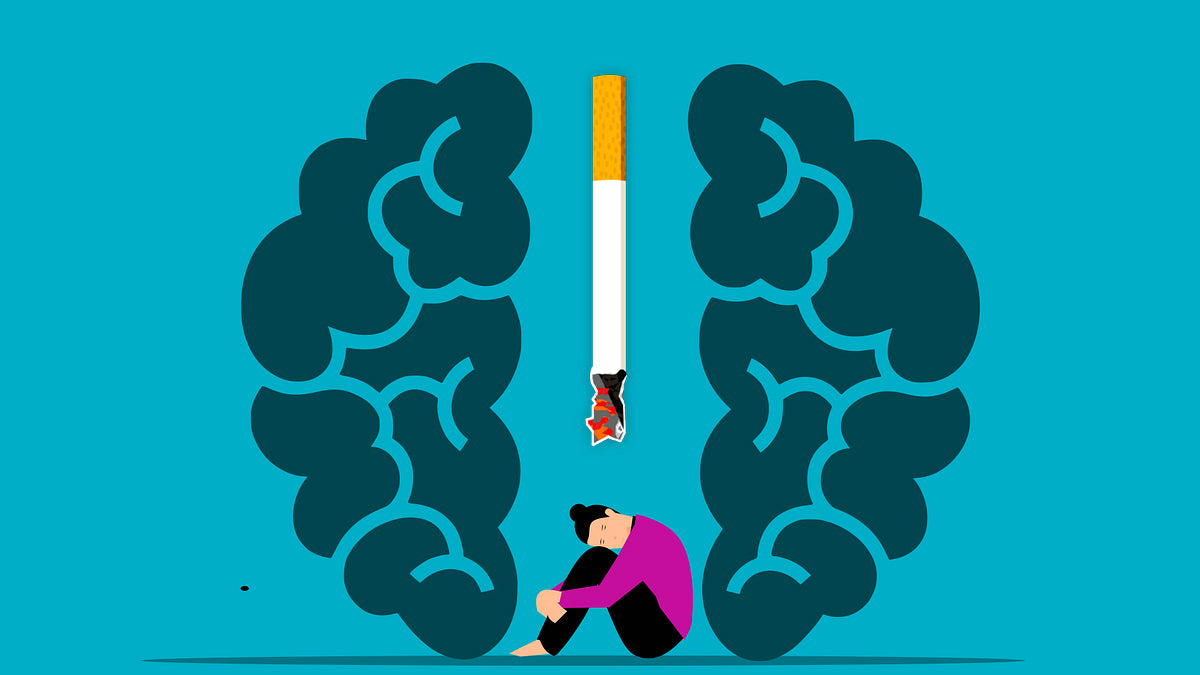The Importance of Mental Health Support in Smoking Cessation
Are you trying to quit smoking and find yourself unable to get out of the habit? Or the thought of smoking cessation gives you jitters? Let's begin this ‘World No Tobacco Day’ by saying: You are not alone! 
The Need for Mental Support For Quitting Tobacco
Quitting smoking by relying on pure willpower alone is not the best strategy. A lot fewer people can do that on their own without any assistance. You need to prepare yourself and seek support to have a real shot at it. If you are going through a tough time in your life, quitting will be even more challenging. But here's the thing - there are loads of help and tools available if you decide to shun tobacco. It is best that you don't go through this process all alone.
While you may feel that you have a hang of this by yourself, seeking verbal, emotional and mental support from your peer group and family will strengthen your journey towards a tobacco-free future. Taking help is not a sign of weakness, and let no one make it otherwise.
Quitting tobacco is a tough ordeal in itself. Seeking mental support, whether through counselling, talking to your friends or through some digital format, indicates your commitment towards your tobacco cessation plans.
Mental Health Support Options: Quit Tobacco With Help
To successfully quit, one must address both the physical and mental components of their dependence. Fortunately, a wide range of resources to support mental health are available.
Plugging in a positive reminder here: much like physical withdrawal symptoms, emotional changes associated with quitting smoking also improve over time.
1. Go to a Counsellor
Seeking assistance from a counsellor can prevent common mistakes and improve the likelihood of successful tobacco cessation. They may recommend various strategies, such as medication, local support groups, self-help literature, mobile reminder applications, and relying on a network of family and friends.
2. Try Telephone Counseling
To be honest, anything phone-based that is effective is also user-friendly. So is the case with tobacco cessation services. Its success has prompted the creation of numerous web-based quit aids and mobile applications, providing a convenient mental health support option for those trying to quit smoking.
3. Cessation Support Programmes
These include support groups, intensive counseling, and specialised tobacco cessation clinics (TCCs). Recognising the significance of tobacco cessation, the government has established several TCCs with support from the WHO. They provide targeted interventions for smokers and facilitate effective cessation strategies that incorporate mental health support.
4. Mental Health Peer Involvement
Having mental health peer workers can be a boon for people suffering from mental illnesses on their way to smoking cessation. These peers provide personalised support that enhances participation in interventions, such as quitlines and nicotine replacement therapy (NRT). It may result in more effective engagement and better outcomes.
5. Support Of Family And Friends
Like in life, when all else fails, your friends and family have your back! Adopt this strategy when you try quitting too. Your tribe is the easiest to access and can play a crucial supporting role in quitting smoking. Many former smokers attribute their success to having a robust social network that kept them on the path to quitting.
When you need encouragement, talk to your co-workers and even the family doctor. Share your plans to quit with your friends and spend time with non-smokers or former smokers who you know will be supportive. Communicate your needs. Ask them to be there during cravings or support in difficult situations.
Ways Your Mental Health Improves After You Quit Smoking
- Less Stress!
Smoking isn’t the best way to cope with stress. Many people use tobacco to relax, but in reality, smoking increases anxiety and tension over time. Quitting it is challenging, but it's actually one of the best things you can do for your mental health. As your body gets used to not having nicotine, you'll notice a decrease in overall stress and anxiety levels. You may still get a craving during stressful situations but decide to quit this ‘World No Tobacco Day’ and see for yourself how significantly your mental health improves over time.
- Decrease in Depression
Studies show that adults with depression smoke twice as much as compared to others. However, people with depression also have difficulty quitting smoking and experience severe withdrawal symptoms.
But here's the good news: quitting smoking can actually improve depression symptoms! By quitting smoking, people may experience a decrease in feelings of sadness, hopelessness, and isolation. In fact, smoking cessation can be just as effective for some people as antidepressants.
- More Effective Mental Health Medications
Adults with mental conditions like schizophrenia are three times more likely to smoke than those without these conditions. It's because smoking can help manage some of the symptoms associated with their conditions, even though it can actually interact with their medications and make it less effective.
But in the long run, quitting smoking can make those treatments more effective and improve overall mental health.
- Increased Self-belief And Confidence
Quitting is a huge personal win, and although many smokers want to quit, very few can do so successfully. If you can quit smoking, your self-belief is likely to increase by leaps and bounds. You’ll become more confident in your ability to achieve your goals that can positively impact your mood and mental health.
- Better Sleep
While smoking gives you a temporary energy boost, it can disrupt your sleep, contributing to high-stress levels and mood swings. Once you quit smoking, you might struggle with insomnia at first, but your body adjusts, and eventually, you get better sleep quality.
- Better Quality Of Life
Quitting smoking can be a game-changer for your mental and physical health. Not only can it decrease depression, anxiety, and stress, but it can also dramatically reduce your risk for heart disease, stroke, and cancer. You'll have more energy and breathe easier, which can lead to a happier and healthier life.
How You Can Help Someone Quit Tobacco
Yes, the onus is on the smoker or chewer to initiate their quit-tobacco journey, but there’s a lot the near and dear ones can do to bolster them. Here are a few things:
| How To Support Someone Quit Tobacco |
|
|
In Case Someone Slips On Their Tobacco Quitting Plans
|
|
Conclusion
Quitting smoking is tough, but having mental health support can make you kick the habit for good. Whether it's a phone app, a quitline, or a counsellor, many mental health support resources available to help. And don't forget your buddies and family. Having people who understand what you're going through and can offer encouragement and patience can make all the difference. So, if you're ready to quit smoking, you don't have to do it alone. And once you do it, it will be a major step towards a healthier and happier you! Apart from all the mental health benefits, you’ll have more time to spend with family, less to worry about, and a heavier wallet in your pocket!















